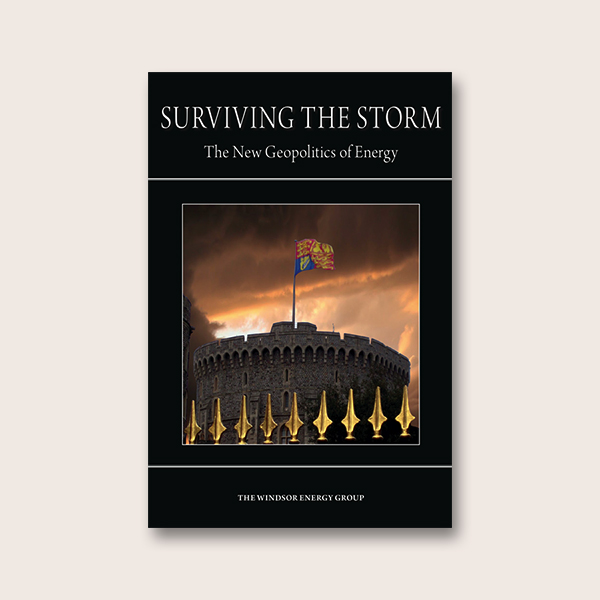The gathering storm now threatening global political, economic and environmental stability has to be taken very seriously. In the context of likely climate change and growing damage to the earth’s atmosphere over the next 35 to 50 years, catastrophe seems, at first sight, inevitable. The impact on international trade, economic growth and food supply could be grievous. Within the lifetime of our children and grandchildren, human health and social welfare may have thereby deteriorated worldwide to the point where mankind’s survival is being put at risk.
This analysis, undertaken by the Windsor Energy Group over the past 12 years, focuses on a key component, the availability of ample global energy supply over this period of 35 to 50 years ahead. With a steadily rising global population and the ever-widening expectations of the billions who live in the non-OECD developing world, it is safe to assume that their global consumption of primary energy, already much higher than that of the OECD countries, could come close to doubling within this period.
Where is all this new energy going to be found? Clearly, alternative energy is struggling hard at present to hang on to its tiny share of the global energy mix. In many areas of scientific research today there is already clear evidence of the dire consequences of doing nothing and a strong impetus to accelerate the pace of developing much more efficient energy-saving technology.
The good news is that we have ample resources of oil, coal and gas to bridge the gap to these new technologies. We will have to maintain the current momentum of production of these fossil-based inputs and to invest heavily in expanding their capacity. The bad news is that we can only achieve this if we can simultaneously ensure that we can neutralise and curb their adverse impact on the atmosphere, on agriculture, fisheries and urban air quality.
This book also explains how the Windsor Energy Group makes its briefing services available to the 170 or so Ambassadors and High Commissioners in London to meet the needs expressed by their governments and by the leading multinational and national energy companies.





